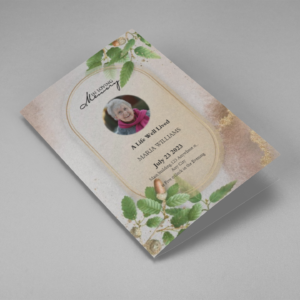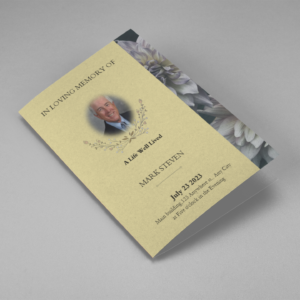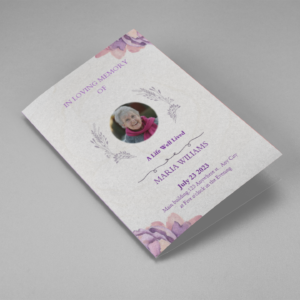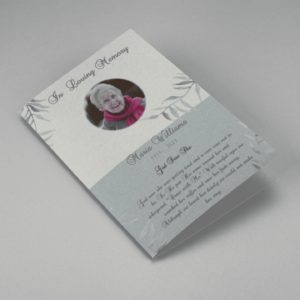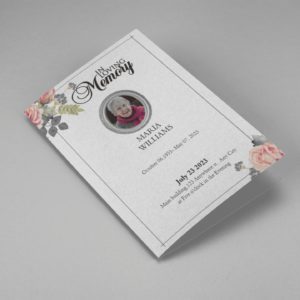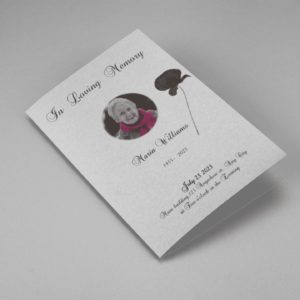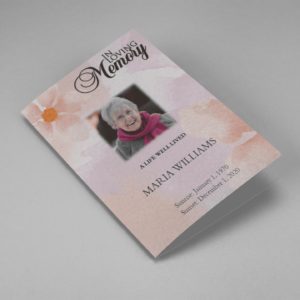Writing a eulogy is one of the most significant ways to honor and celebrate the life of a loved one. It allows you to share memories, express emotions, and provide comfort to others during a time of loss. Crafting a eulogy can feel overwhelming, but with the right steps, you can create a heartfelt tribute that resonates with your audience.
Steps to Write a Eulogy
1. Understand the Purpose
A eulogy is a speech that highlights the deceased’s life, character, and impact. It’s an opportunity to celebrate their achievements, recount cherished memories, and offer support to the grieving audience.
2. Gather Memories and Information
Talk to family members, friends, and colleagues to gather anecdotes, accomplishments, and significant moments. This collective input ensures the eulogy reflects various aspects of your loved one’s life.
3. Create an Outline
Organizing your thoughts ensures the eulogy flows smoothly. A basic outline includes:
- Introduction: Acknowledge the audience and your relationship with the deceased.
- Body: Share stories, characteristics, and accomplishments.
- Conclusion: Express gratitude and share a final message of love or remembrance.
4. Choose the Right Tone
Decide whether the tone will be formal, heartfelt, humorous, or a mix. Reflect on the personality of your loved one and the preferences of the audience.
5. Write and Edit
Write your eulogy as if speaking directly to the audience. Keep it conversational and sincere. Once done, revise for clarity and length. Aim for a speech lasting 5-10 minutes.
6. Practice
Rehearse your eulogy to become comfortable with the delivery. This will help you manage emotions and ensure a steady pace.
Sample of an Eulogy
A sample of an eulogy is immensely helpful as it provides a structured guide and inspiration for writing your own heartfelt tribute. These samples showcase the tone, flow, and key elements of a eulogy, making the process less daunting during an emotional time. Whether you’re sharing personal anecdotes, celebrating achievements, or expressing gratitude, a sample helps organize your thoughts and ensures your words honor your loved one meaningfully. Examples, particularly tailored ones like for a father, offer relatable and personalized insights, empowering you to craft a sincere and memorable farewell speech with confidence.
Sample Eulogy for Father
“Good afternoon, everyone. Thank you for being here to honor and remember my dad, John, who was not only a father but a mentor, friend, and inspiration to us all.
Dad was a man of immense kindness and unwavering strength. He taught us the value of hard work and compassion. Whether it was fixing a neighbor’s car or sharing his wisdom over Sunday dinners, Dad always gave selflessly.
One of my favorite memories is our fishing trips. He’d always say, ‘It’s not about the fish we catch, but the time we share.’ Those quiet moments taught me patience and the importance of being present.
Dad had an incredible sense of humor, always finding a way to make us laugh, even during tough times. He showed us that life is brighter when you can see the silver lining.
Today, as we say goodbye, I’m reminded of one of his favorite sayings: ‘Leave the world better than you found it.’ Dad certainly did that. His love and legacy live on in all of us.
Thank you, Dad, for everything. We love you, and we’ll carry your spirit with us always.”
Examples of Eulogy for Father
An Example Of A Eulogy For Father is a heartfelt tribute given at a funeral to honor a father’s life and legacy. It typically includes memories, achievements, and personal stories that highlight his character, values, and the impact he had on his family and others. A eulogy often expresses gratitude, love, and the emotional bond between the speaker and the deceased. It may mention significant moments in his life, such as his role as a provider, mentor, or protector, and reflect on the lessons he imparted. The eulogy aims to celebrate the father’s life and provide comfort to those mourning his loss.
Eulogy Example for Dad
“My father, Mark, was a beacon of light in our lives. His laughter, generosity, and unwavering support made every moment with him special. Whether it was cheering at my games or guiding me through life’s challenges, Dad was always there. Today, we celebrate not only what he accomplished but the love and joy he brought into our lives.”
Eulogy Examples for Dad
- Highlight the deceased’s passions and hobbies.
- Share personal anecdotes that reflect their personality.
- Include their favorite sayings or lessons they imparted.
Templates for Eulogy
Here’s a simple templates for eulogy to help structure your eulogy:
Introduction
“Good [morning/afternoon], everyone. I’m [Your Name], [relationship to the deceased]. Today, I have the honor of sharing a few words about [Name].”
Body
- Share stories that highlight their personality.
- Discuss their impact on family, friends, and the community.
- Mention their achievements, passions, or favorite activities.
“As we remember [Name], let’s carry their lessons and love in our hearts. Thank you, [Name], for the memories and love you gave us.”
Funeral Eulogy Templates
-
Searching for a Oak Leaf With Gold Oval Frame Half Page Funeral Program that is easy to print and amass and has a cutting-edge look? The Oak Leaf With Gold Oval Frame Half Page Funeral Program is the Perfect decision because it measures 8.5”x 5.5”.
- No Limitation on Content, Edit anything
- Edit anytime – unlimited revisions even after purchased
- Get a printable PDF downloaded to get it printed on your own.
-
Searching for a Brown and White Classic Funeral Program Half Page Program that is easy to print and amass and has a cutting-edge look? The Brown and White Classic Funeral Program Half Page Program is the Perfect decision because it measures 8.5”x 5.5”.
- No Limitation on Content, Edit anything
- Edit anytime – unlimited revisions even after purchased
- Get a printable PDF downloaded to get it printed on your own.
-
Searching for a Purple Elegant Watercolor Half Page Funeral Program Template that is easy to print and amass and has a cutting-edge look? The Purple Elegant Watercolor Half Page Funeral Program Template is the Perfect decision because it measures 8.5”x 5.5”.
- No Limitation on Content, Edit anything
- Edit anytime – unlimited revisions even after purchased
- Get a printable PDF downloaded to get it printed on your own.
-
Searching for a Cream and Green Photo Obituary Half Page Program that is easy to print and amass and has a cutting-edge look? The Cream and Green Photo Obituary Half Page Program is the Perfect decision because it measures 8.5”x 5.5”.
- No Limitation on Content, Edit anything
- Edit anytime – unlimited revisions even after purchased
- Get a printable PDF downloaded to get it printed on your own.
-
Searching for a Cream Simple Elegant Photo Church Half Page Program that is easy to print and amass and has a cutting-edge look? The Cream Simple Elegant Photo Church Half Page Program is the Perfect decision because it measures 8.5”x 5.5”.
- No Limitation on Content, Edit anything
- Edit anytime – unlimited revisions even after purchased
- Get a printable PDF downloaded to get it printed on your own.
-
Searching for a Samovar Silver Half Page Funeral Program Template that is easy to print and amass and has a cutting-edge look? The Samovar Silver Half Page Funeral Program Template is the Perfect decision because it measures 8.5”x 5.5”.
- No Limitation on Content, Edit anything
- Edit anytime – unlimited revisions even after purchased
- Get a printable PDF downloaded to get it printed on your own.
-
Searching for an Elegant Beige Half Page Funeral Program Template that is easy to print and amass and has a cutting-edge look? The Elegant Beige Half-Page Funeral Program Template is the Perfect decision because it measures 8.5”x 5.5”.
- No Limitation on Content, Edit anything
- Edit anytime – unlimited revisions even after purchased
- Get a printable PDF downloaded to get it printed on your own.
-
Searching for a White Floral Pro Half Page Funeral Program Template that is easy to print and amass and has a cutting-edge look? White Floral Pro Half Page Funeral Program Template is the Perfect decision because it measures 8.5”x 5.5”.
- No Limitation on Content, Edit anything
- Edit anytime – unlimited revisions even after purchased
- Get a printable PDF downloaded to get it printed on your own.
-
Searching for a Grey and Burgundy Elegant Half Page Funeral Program Template that is easy to print and amass and has a cutting-edge look? Grey and Burgundy Elegant Half Page Funeral Program Template is the Perfect decision because it measures 8.5”x 5.5”.
- No Limitation on Content, Edit anything
- Edit anytime – unlimited revisions even after purchased
- Get a printable PDF downloaded to get it printed on your own.
-
Searching for a Soft Green and Grey Minimalist Floral Half Page Funeral Program Template that is easy to print and amass and has a cutting-edge look? Soft Green and Grey Minimalist Floral Half Page Funeral Program Template is the Perfect decision because it measures 8.5”x 5.5”.
- No Limitation on Content, Edit anything
- Edit anytime – unlimited revisions even after purchased
- Get a printable PDF downloaded to get it printed on your own.
-
Searching for a Gray Elegant Oval Frame Half Page Funeral Program Template that is easy to print and amass and has a cutting-edge look? Gray Elegant Oval Frame Half Page Funeral Program Template is the Perfect decision because it measures 8.5”x 5.5”.
- No Limitation on Content, Edit anything
- Edit anytime – unlimited revisions even after purchased
- Get a printable PDF downloaded to get it printed on your own.
-
Searching for a Blue Organic Minimal Half Page Funeral Program Template that is easy to print and amass and has a cutting-edge look? Blue Organic Minimal Half Page Funeral Program Template is the Perfect decision because it measures 8.5”x 5.5”.
- No Limitation on Content, Edit anything
- Edit anytime – unlimited revisions even after purchased
- Get a printable PDF downloaded to get it printed on your own.
-
Searching for a Pink and Orange Watercolour Half Page Funeral Program Template that is easy to print and amass and has a cutting-edge look? Pink and Orange Watercolour Half Page Funeral Program Template is the Perfect decision because it measures 8.5”x 5.5”.
- No Limitation on Content, Edit anything
- Edit anytime – unlimited revisions even after purchased
- Get a printable PDF downloaded to get it printed on your own.
-
Searching for a Pink Floral Paper Half Page Funeral Program Template that is easy to print and amass and has a cutting-edge look? Pink Floral Paper Half Page Funeral Program Template is the Perfect decision because it measures 8.5”x 5.5”.
- No Limitation on Content, Edit anything
- Edit anytime – unlimited revisions even after purchased
- Get a printable PDF downloaded to get it printed on your own.
Funeral Programs : Helping Videos
Frequently Asked Question On How do you write a eulogy?
What is a eulogy?
A eulogy is a speech or tribute delivered at a funeral or memorial service, honoring the life of the deceased. It offers reflections on the person’s character, significant life events, and how they impacted others.
Who typically delivers a eulogy?
Eulogies are often delivered by close family members, friends, or colleagues of the deceased. In some cases, a religious leader or funeral director may assist if no one from the family feels comfortable speaking.
What should be included in a eulogy?
A good eulogy should include an introduction, a brief overview of the person’s life, personal memories or anecdotes, the impact they had on others, and a conclusion with final thoughts or words of comfort.
How do I start writing a eulogy?
Start by reflecting on your memories of the deceased. Jot down key moments, their personality traits, and important life events. Once you’ve gathered your thoughts, create an outline to structure your speech before writing it out fully.
How personal should the eulogy be?
A eulogy is a personal reflection on the deceased’s life, so it should include your memories and interactions with them. However, avoid sharing stories that may be too private or inappropriate for the setting.


